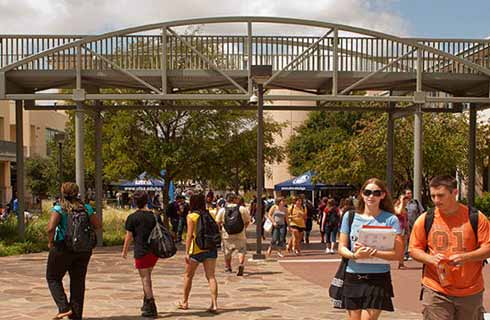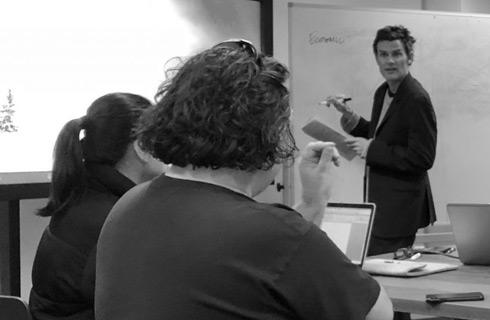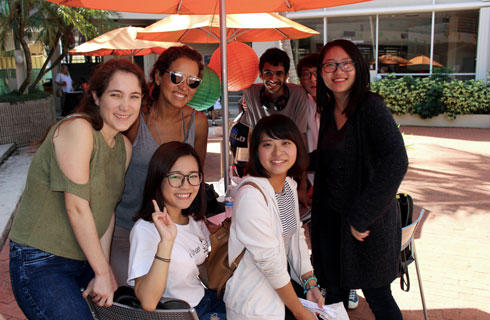文学士犯罪学(荣誉)学位
BA (Hons) Criminology

学历文凭
Bachelor Degree with Honours

专业院系
School of Applied Social Sciences

开学时间

课程时长

课程学费

国际学生入学条件
IDP—雅思考试联合主办方

雅思考试总分
6.5
- 雅思总分:6.5
- 托福网考总分:80
- 托福笔试总分:
- 其他语言考试:Pearson Academic PTE - 62 (with no less than 59 in each Communicative Skill) Cambridge C2 Proficiency or C1 Advanced - 176 with a minimum of 169 per component
CRICOS代码: L370
申请截止日期: 请与IDP联系 以获取详细信息。
课程简介
What is crime Why does it occur And what are the best ways to address it Study the answers to these kinds of questions with a degree in Criminology.,Criminology aims to understand crime and deviance from a social perspective, exploring how crime and society are connected. We seek to answer questions like: why are some people more likely to commit crimes than others; why are some people more likely to be victimised; how can crime be effectively prevented or controlled; and so on. From a more critical perspective we also consider why some activities are defined as ‘criminal’ in the first place and what this tells us about the workings of power and authority in society. As a Criminology student, you will join a dynamic learning and research community, which includes internationally recognised experts actively engaged in shaping criminal justice policy. You will also learn how to design and carry out criminological research through research projects carried out in the second and final year of study. We offer the option to undertake a placement with a local community organisation to deploy your knowledge in an applied setting. You can find out more about this course by watching our film.Our degree will challenge your opinions and develop your critical understanding, both about crime as well as the social and politics contexts within which it occurs. You will study theories of criminality and criminal justice, the roles and operation of criminal justice institutions, and explore specific topics such as gender-based violence, cybercrime and sex work.Course structureYear 1 modulesCore modules:Introduction to Criminological Theory will help you develop a sociological perspective on issues of crime, criminality and deviance. It introduces a range of key criminological theories and concepts through examination of four classic criminological studies, followed by an overview of theoretical development in Criminology over the course of the 19th and 20th centuries.Social Research Methods will introduce you to the concept of social research and practice-based inquiry. You will learn how to produce and analyse different kinds of data and develop some basic practical skills in designing and carrying out social research yourself.The Criminal Justice Landscape outlines current debates within the field of criminal justice studies. You will learn about the key agencies of criminal justice including the Crown Prosecution Service, courts, prisons and the police. This module also introduces you to volunteering opportunities within the criminal justice system and actively encourages you to get involved in your local community.Critical Scholarship in the Social Sciences aims to support the transition to university-level study by helping you develop the foundational academic skills that are needed throughout the rest of your degree. Through it you will learn key academic conventions and skills, for example: reading and evaluation; writing and argument; presentation and discussion; and so on.Year 2 modulesCore modules:Contemporary Criminological Theory demonstrates how traditional theoretical models and concepts in Criminology have informed contemporary criminological thought. You will also learn how these recent developments are situated within recent social and political contexts, covering for example radical, realist, gender, control, cultural and postmodernist perspectives.Research Methods in Action supports your development of applied research skills. At the core of the module is a group-based research project you design and carry out on a topic of your choosing. In addition, you will learn a range of methods and techniques for analysing both quantitative (statistics) and qualitative (textual verbal visual) data.
相关申请
 预科
预科 奖学金
奖学金 实习机会
实习机会 在校学习
在校学习 跨境学习
跨境学习 校园授课-线上开始
校园授课-线上开始 在线/远程学习
在线/远程学习
开学时间&学费
学费信息仅供参考,请与IDP联系以获取详细信息
| 开学时间 | 时长 | 学费 | 地点 |
|---|
学校排名

世界排名114
数据源:
泰晤士高等教育世界大学排名
关于杜伦大学

杜伦大学创建于1832年,是英国历史最悠久的大学之一。杜伦大学建于中世纪世界遗产地旁,有着悠久的历史和现代价值观,是一座备受推崇并拥有前瞻性思维的学府。如今,来自世界各地的18000多名学生在达勒姆就读。杜伦大学有28个系,开设有200多门本科和研究生课程。该校很多教师都处于各自领域的最前沿。教职人员利用出色的研究和学科知识为所有学生提供优质的教学。目前,杜伦大学有17个学科在全球大学中名列前100位,其中九个学科名列前50位。除了在学术上的卓越成就,该校还努力为学生提供支持,帮助他们在毕业后获得有意义的工作。其毕业生就业能力目前在世界上排名第88位。该校的就业与创业中心致力于培养学生的专业技能,并提供商业人脉和工作机会。杜伦大学目前在2020年《QS世界大学排名》中名列第78位,稳稳跻身全球大学百强之列。该校为教职人员和学生创造了一个热情友好的多元化社交环境,并因此而倍感自豪。目前,杜伦大学28%的在校生为非英国本土学生。大学社区处在独一无二的达勒姆求学体验的核心位置,达勒姆的每个社区均是多元化、多学科的社区,由来自不同背景和文化的学者、学生和工作人员组成。有了这些社区,加上该校杰出的支持体系,学生们一定会有宾至如归之感,并可参与大量精彩的课题。
本校相关课程

博士神学与宗教
学历文凭
Ph.D.
开学日期
课程费用总额


MLitt神学与宗教
学历文凭
Masters Degree (Taught)
开学日期
课程费用总额


博士学位论文博士学位
学历文凭
Ph.D.
开学日期
课程费用总额


理学硕士心理学研究
学历文凭
Masters Degree (Research)
开学日期
课程费用总额


研究心理学硕士
学历文凭
Masters Degree (Research)
开学日期
课程费用总额


博士哲学
学历文凭
Ph.D.
开学日期
课程费用总额

其他相关课程

艺术与文化管理硕士
 墨尔本大学
墨尔本大学学历文凭
Masters Degree (Coursework)
开学日期
课程费用总额


商业硕士(研究)
 斯威本科技大学
斯威本科技大学泰晤士高等教育世界大学排名:282
学历文凭
Masters Degree (Research)
开学日期
课程费用总额


犯罪学学士学位
 新英格兰大学
新英格兰大学学历文凭
Bachelor Degree with Honours
开学日期
课程费用总额


Study Abroad - JNSBA
 维多利亚大学
维多利亚大学泰晤士高等教育世界大学排名:602
学历文凭
Study Abroad
开学日期
课程费用总额


文理科学士学位
 悉尼大学
悉尼大学泰晤士高等教育世界大学排名:54
学历文凭
Bachelor Degree
开学日期
课程费用总额


犯罪学硕士(专业)
 邦德大学
邦德大学泰晤士高等教育世界大学排名:412
学历文凭
Masters Degree (Coursework)
开学日期
课程费用总额










 英国
英国